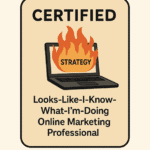Taking time off work is often seen as a bonus or well-deserved reward for hard work. However, even when the opportunity to get out of the office presents itself, many in the American workforce are still hesitant.
Vacations are not just an indulgence. Research shows they are vital to good mental and physical health. What’s more, they can have mood-boosting and productivity benefits that last well beyond the vacation. Below are some of the numerous benefits of utilizing vacation days.
Overworking and employee burnout can lead to a multitude of issues that affect health and a worker’s general output. In fact, neuroscientists have linked chronic stress exposure to brain structure alterations and increased rates of anxiety and depression.
How can an employer or staff member tell if someone is not feeling his or her best? Typical signs may include not taking phone calls or checking emails, sudden mood changes, lethargy and being mentally disengaged from work.
If an employee is feeling this way, why not take time off? According to a study, the reasons behind this decision might stem from a heavy workload; not being able to afford days off; the fear of pending layoffs; and worry that taking time off will make an employee appear less dedicated to the company.
Vacations — even short durations of leave — can help combat health problems associated with stress, such as stroke and ischemic heart disease. As a person rests and enjoys her or his time off, feelings of calm arise and relieve the stress. Without feeling constant pressure, the body and mind is allowed to heal.
Research reveals that vacations are linked to lower rates of heart disease, reduced levels of stress, depression and anxiety, and improved productivity. The study also found that employees who take regular time away from work see greater job and life satisfaction, reported less stress and burnout, and experienced fewer health complaints such as back pain, poor sleep and headaches.
How can managers encourage time off work?
To start, it’s advised to implement a modern leave-taking management system. Easy-to-operate and dependable, advanced software can simplify the process for everyone and make time-off requests less formal.
Another straightforward method is to modify and modernize leave policies. Vacation shaming is still prevalent in the workforce, as is an unhealthy work-life balance. By addressing outdated practices and encouraging a more balanced lifestyle, company culture could change to be more health-minded. Such changes may see better retention and higher levels of productivity across the board.
For more benefits and additional ways to encourage employees to take a break, please see the accompanying resource.
Author Bio: Debbie Sabin is President of Hour Timesheet, a provider of software tools for small to medium businesses that are looking to improve workflow processes related to payroll, billing or real-time reporting of their workforce. Sabin has over three decades of experience designing, implementing and supporting employee time tracking software.
https://www.allinahealth.org/healthysetgo/thrive/importance-of-taking-a-vacation?id=36507232167
https://www.everydayhealth.com/self-care/why-taking-time-off-is-so-good-for-your-health/
https://theleegroup.com/taking-time-off-good-health/
https://www.everydayhealth.com/self-care/why-taking-time-off-is-so-good-for-your-health/
Graphic created by Hour Timesheet.











